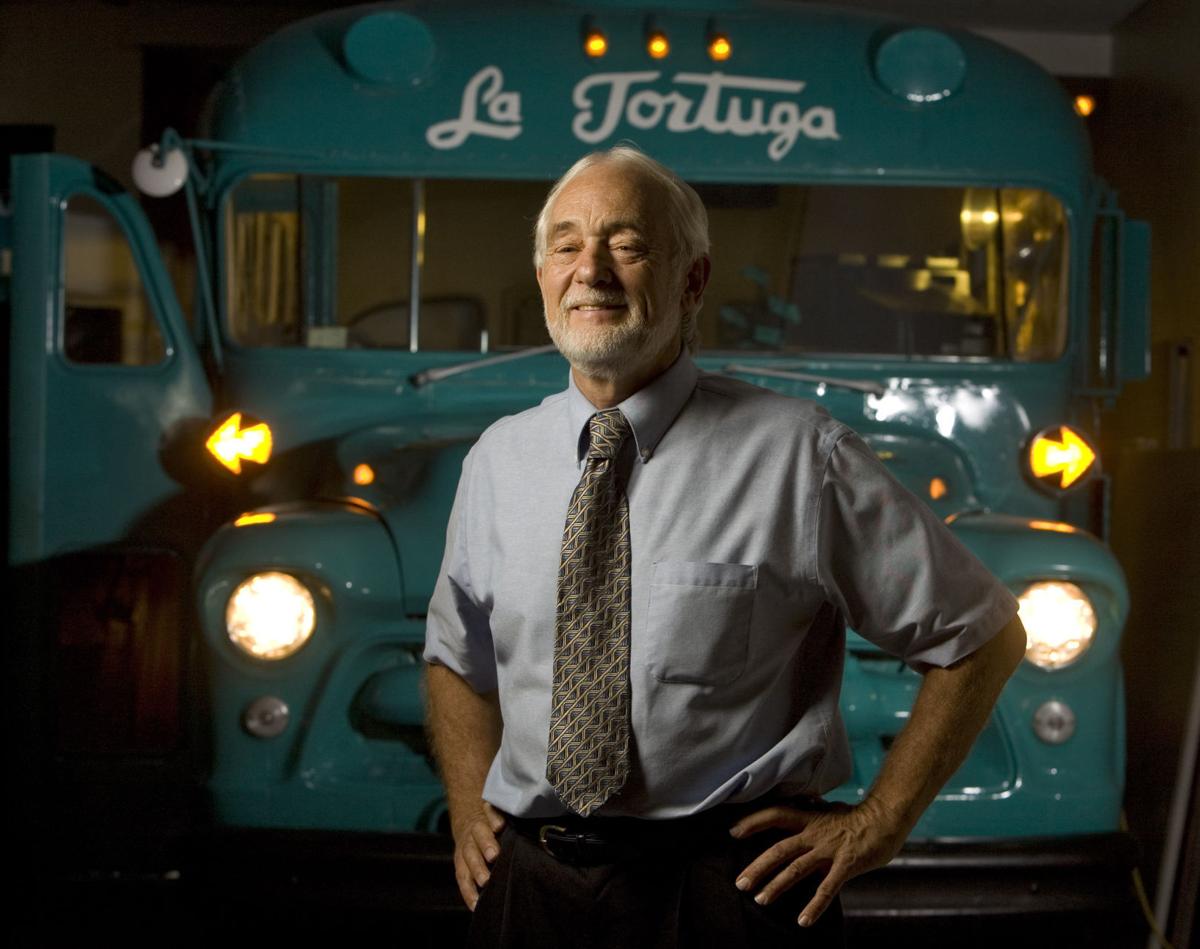In 1967, with a $19,000 grant through the Tucson Committee for Economic Opportunity, a bus nicknamed “La Tortuga” and a vision to improve the quality of rural life, John David Arnold founded Portable Practical Educational Preparation Inc.
Fast forward 50 years: Though La Tortuga — “The Tortoise” — has been retired to the Smithsonian-sanctioned Farmworker Hall of Fame, Arnold has remained behind the wheel as PPEP has grown into a global institution.
“I enjoy driving the bus. Since 1967, everybody who has participated in every program and every client have all been riding this big bus together, figuratively speaking,” said Arnold, 74. “Some of the passengers come for job training and some come for our behavioral health programs or for our group homes for those with developmental disabilities. ... It has been a 50-year journey and we have had more than 10 million passengers on the bus, so to speak.”
The journey began when Arnold, a young pastor who had lived in Mexico as a child, felt a calling to teach English, basic education and job skills to migrant farmworkers who came to Southern Arizona to pick cotton and seasonal produce. La Tortuga was his portable classroom.
“These migrant workers built a lot of the farming and infrastructure in the southern United States. There were American and Native American farm workers, but the bulk of the people who originally did much of the work were Braceros who crossed the border to work. Poverty knows no boundaries and we need to realize that poverty migrates,” said Arnold.
Since its inception, PPEP, which is a nonpolitical and nonsectarian organization, has been committed to empowering migrants, seasonal farm workers and disadvantaged rural residents not only with education and job training but also through human and social services. The organization boasts more than 500 employees with more than 35 field offices statewide and several abroad.
It has expanded programs over the years to include intellectual development-disability services that offer clinical, therapeutic and direct care through 18 group homes, adult day programs and training, employment service support and independent living support.
PPEP Behavioral Health Services address everything from substance abuse and DUI education and training to domestic violence, parenting and healthy relationships. Additionally, the PPEP Microbusiness and Housing Development Corp. has provided $25 million in loans to start or expand small businesses in Southern Arizona, Mexico and West Africa. The program also offers free small-business consulting, technical assistance and resources.
In another endeavor, PPEP has worked with the U.S. Department of Housing and Urban Development in a multi-state effort to provide more than 600 self-help housing units in which families work together to build homes in rural areas.
The nonprofit PPEP Foundation was established in 2006 with the intent of providing philanthropic support for PPEP projects. The primary focus is three-fold: Scholarships for at-risk students including rural and farm workers, global humanitarian aid and business-development training and technical assistance to micro borrowers.
Communication and collaboration are the cornerstones of all PPEP and PPEP Foundation programs, according to Arnold. Community partners include individuals and businesses, along with government and social service organizations and institutions of higher learning.
“PPEP has been built on a roadway of partnerships, collaboration and initiation of programs that didn’t exist to meet the demands of the people we serve. The idea was to find out people’s needs and to work with them to help themselves. We work to train and educate people for the sole purpose that they will become self-sufficient. Any assistance programs are geared toward self-sufficiency in order to get people out of poverty,” he said.
The educational programming has evolved to include free online charter schools and seven PPEP Tec alternative high schools that serve more than 7,000 Southern Arizona students annually as well as programs such as PPEP YouthBuild, a program that builds affordable community housing, and peer-to-peer substance-abuse prevention efforts for young people.
Wide-ranging international efforts have included clean water and nutrition advocacy, Ebola/malaria preparedness, economic development, and female genital mutilation workshops in Africa as well as prevention of illegal deforestation and poaching in Ghana, and a Zika Safe Project in Costa Rica.
In Mexico, programs have encompassed support for orphanages, micro-business financing, scholarships, health initiatives for diabetes and cancer prevention and programs and services for the elderly, disabled and developmentally disabled.
Arnold views the projects at home and abroad as rural activism made possible by a passionate team of employees overseen by a dedicated board of directors.
“When you deal with rural areas, you can’t do it from a city. Our cardinal rule is to communicate and go out where people live and work. When you drop a stone in a pond, you see the ripples that extend out. PPEP goes out to the furthest ripple out and works its way back in,” Arnold said.
Ultimately, Arnold hopes that PPEP’s efforts to improve quality of life will encourage people to retain residency in rural areas. However, he also recognizes the importance of PPEP programs to refugees and those in the inner cities, particularly since many immigrants eventually migrate to urban areas.
“We not only believe in teaching people how to fish, but in teaching them how to sell the fish that they catch. The way to become self-sufficient is to empower and educate people. When your car breaks down and the battery is dead, you have to get it changed. You can’t just jumpstart a battery and expect it to stay charged. You have to be the mechanic that can change it,” he said.





